VODAFONE PROCUREMENT COMPANY LEADS WAY ON STRATEGY AND ESG














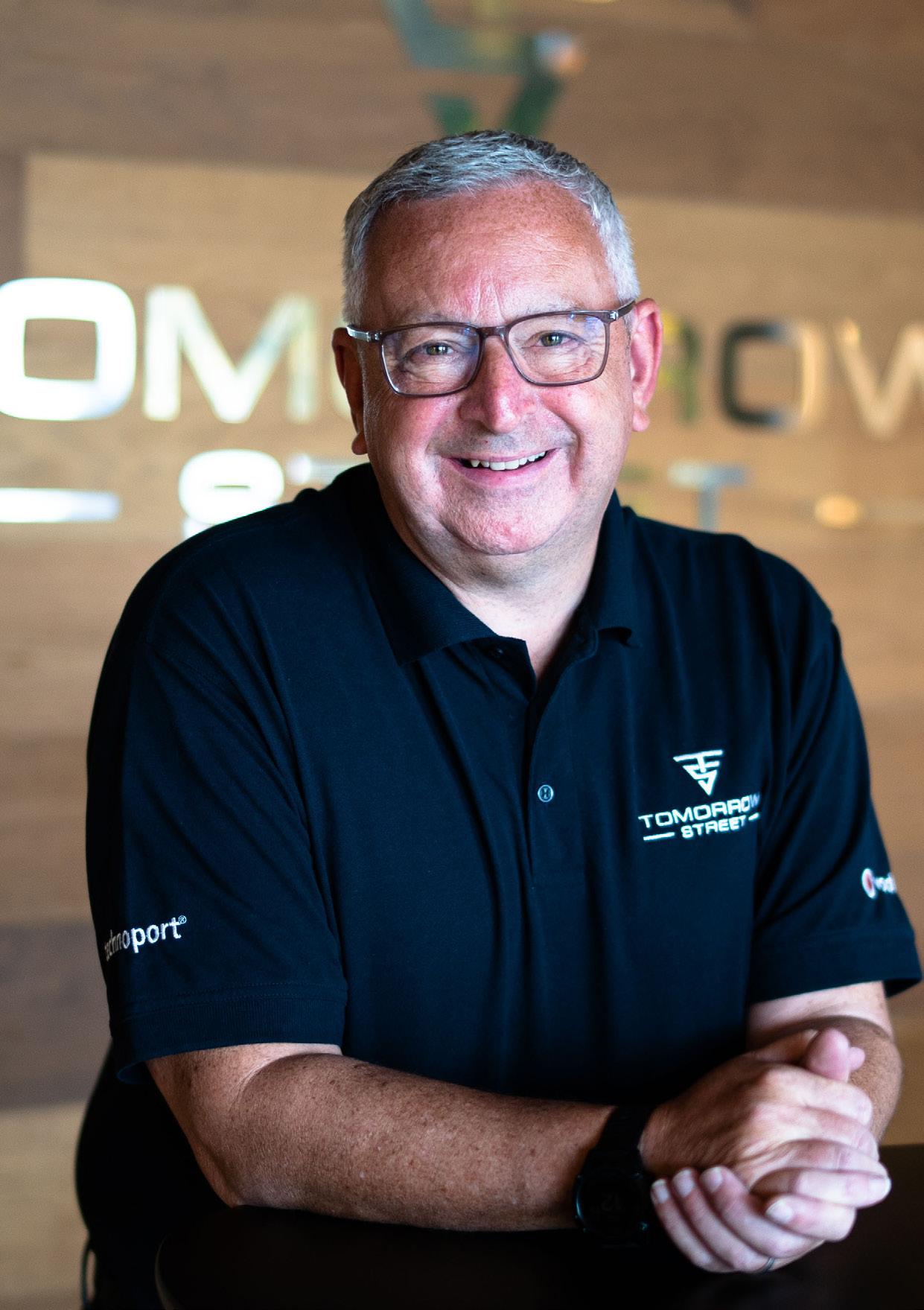
Vodafone was among the first organisations to see procurement as something more than a mere cost control centre – eleven years before the supply chain shocks of the pandemic prompted organisations the world over to follow suit.
It was back in 2008 that Vodafone established Vodafone Procurement Company (VPC) in Luxembourg, aiming to service the procurement needs of all Vodafone entities across the group. The motive for the move was to bring the company’s scale to bear.
“Prior to VPC, Vodafone’s supplier partners had to negotiate with every single operating company and tell them that they had the best procurement deal on the planet,” says Ninian Wilson, who is both CEO of VPC and also Vodafone Director of Supply Chain Management. “They don't do that anymore. Now, they negotiate once for our suppliers, and we hold the price books for the whole company.”
Today, Ninian Wilson and his team manage a spend of around €24bn across the company, and, as well as marshalling spending with suppliers worldwide, it supports the needs of its operating companies and group functions, in addition to selling procurement services to third parties.
Ninian Wilson, Global Supply Chain Director & CEO of Vodafone Procurement Company, on why problems are an opportunity to create competitive advantage
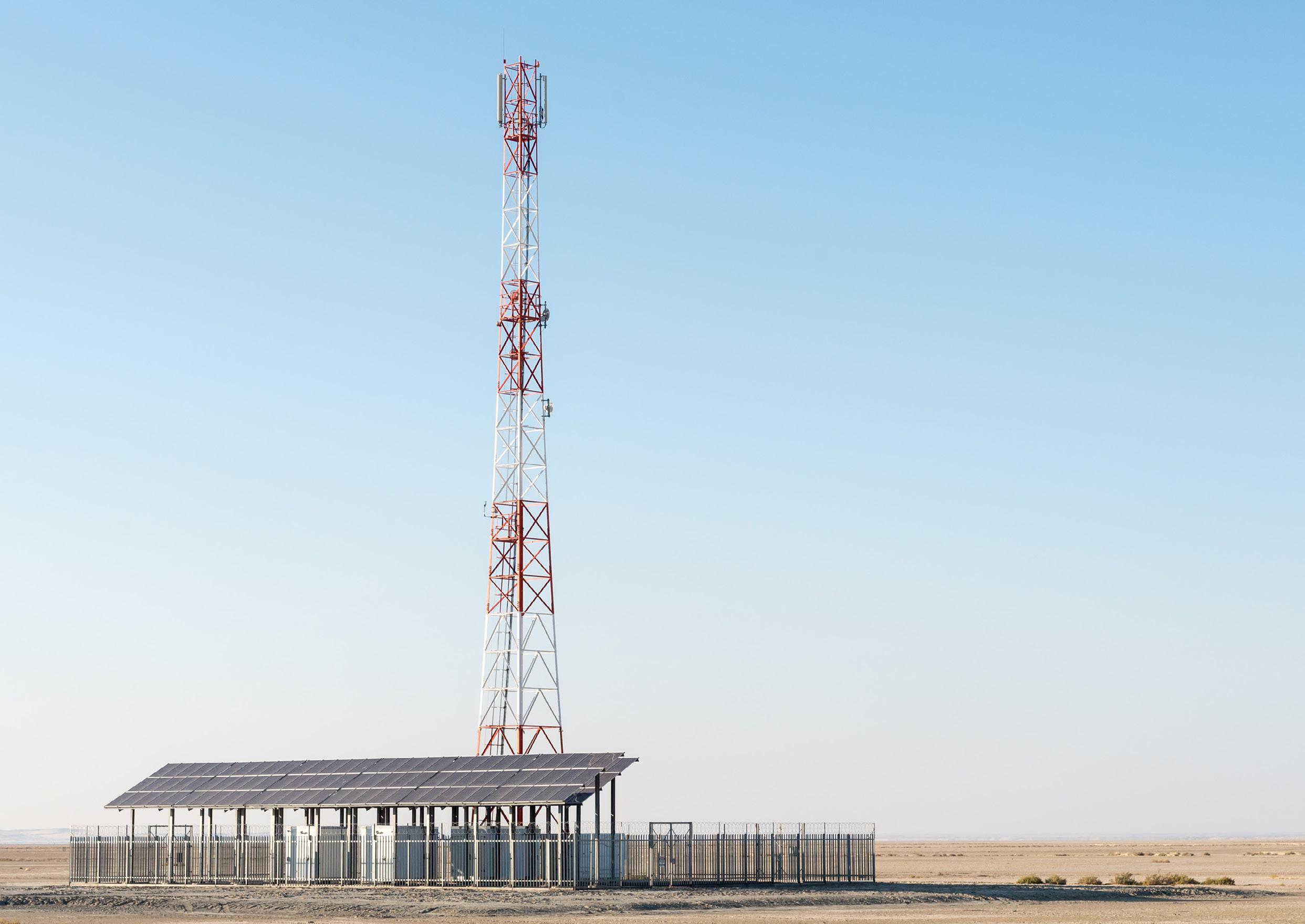
Huawei green energy solutions aim to drive technology revolution for a better, greener future. Together with global customers and partners, by end of Jun 2022 Huawei energy solution has achieved:
Green Energy Generation: 588.5 billion kWh
CO2 Emission Reduction: 290 million tons
Equivalent to Plant: 390 million trees
Learn More

Huawei is using innovative solutions, including the development of solar panels and energy storage solutions, to help significantly reduce carbon emissions
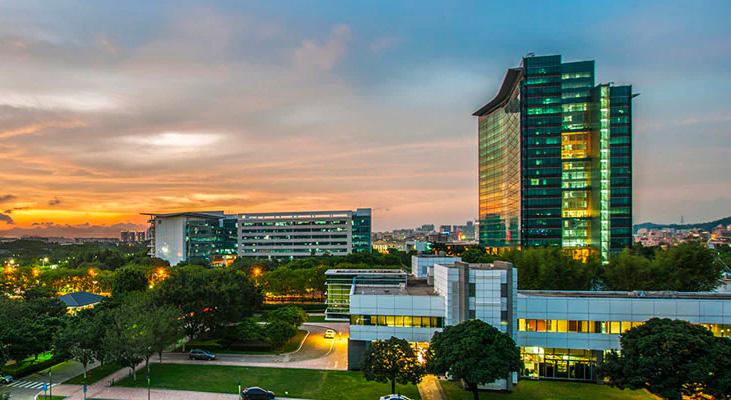

With the help and support of Huawei, Vodafone has been a pioneer in implementing its net zero strategy.
To support its ambitious goals, Huawei has used a number of innovative solutions, including the development of solar panels and energy storage solutions in a number of countries, including Egypt and South Africa, in a move to significantly reduce Vodafone’s carbon emissions.
“Apart from its European networks achieving 100% electricity supply from renewable sources in 2021, Vodafone is also committed to making all its African networks 100% powered by renewable energy by 2025,” says Huawei’s Senior Vice President, Vincent Pang.

“The current energy crisis in Europe has resulted in sharp increase in electricity bills and energy shortage, which is severely impacting telcos’ operations,” adds Pang. “To overcome the challenge, we have developed innovative solutions at the equipment, site, and network levels to
support telcos reducing energy consumption throughout the life cycles of their networks.”
Huawei has been continuously working with the Carbon Disclosure Project (CDP) and has achieved industry-leading scores for consecutive years in scope 3 carbon emissions: indirect emissions that occur in a company’s value chain. And with the globalisation of supply chains in recent years, Huawei has managed key supply chain issues to support Vodafone’s requirements, maintaining steady operations and remained determined to invest for the future.
To maintain supply chain resilience against pressure and to ensure both business continuity and cost advantages, Huawei works closely with suppliers and partners, Pang says.“We do not rely on any single country or supplier, and all of our key products have alternative sources within our supply chain,” he adds. “Vodafone and Huawei are long-term strategic partners,” Pang concludes. “We are absolutely confident in our ability to continue providing Vodafone with high-quality products and services.”
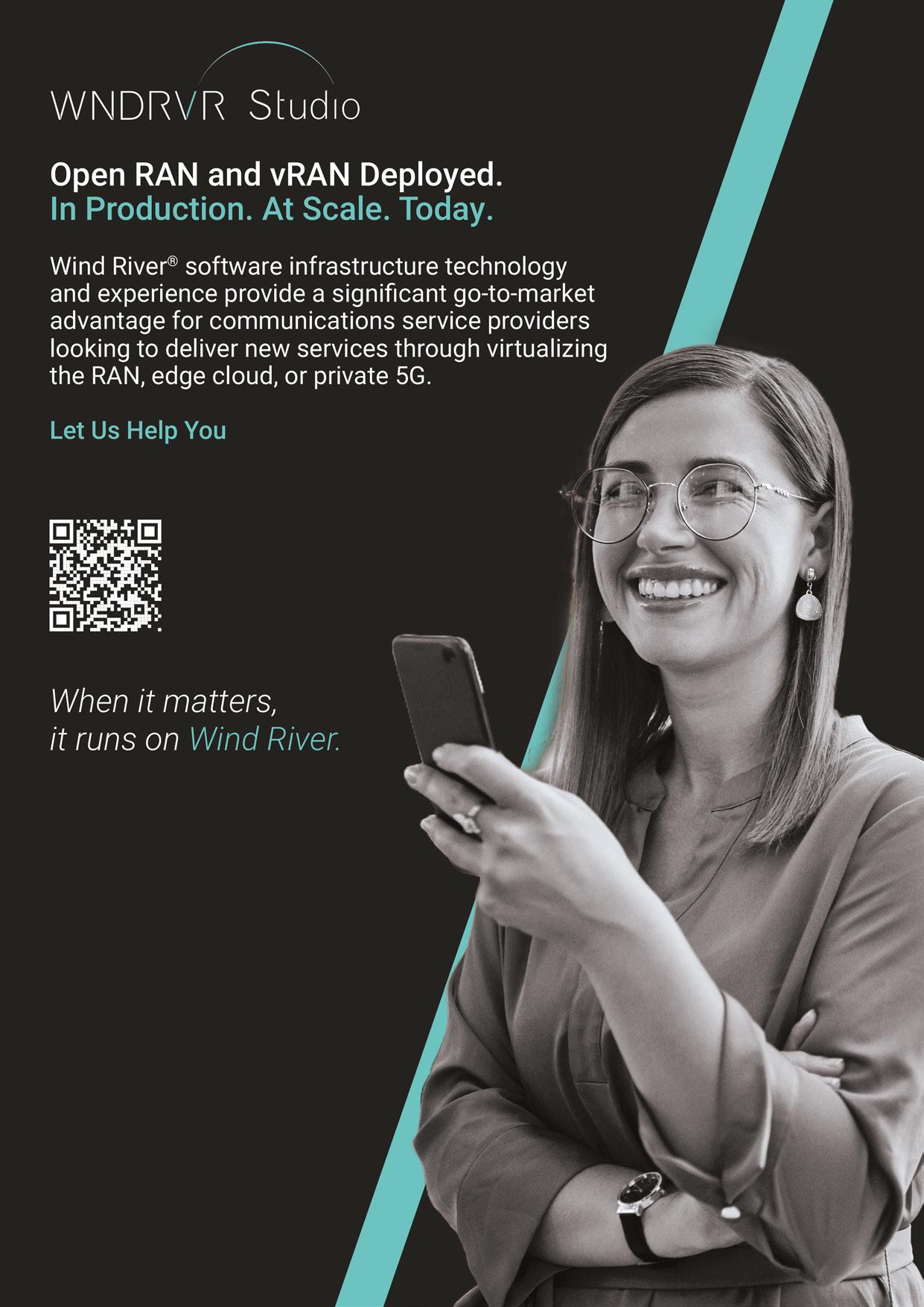
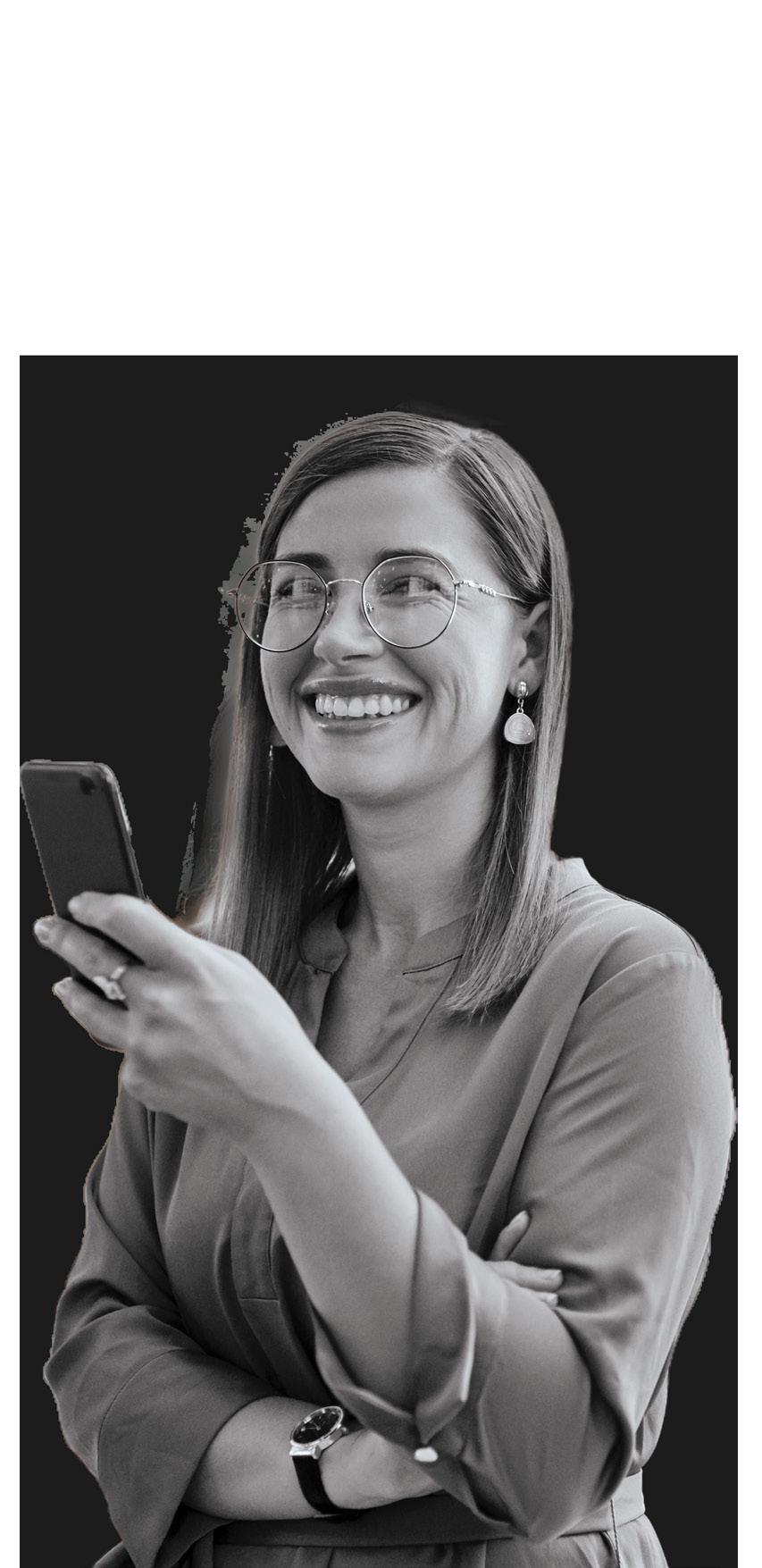
Wind River discusses its work with Vodafone, to help in its efforts to build Europe’s first commercial Open Radio Access Networks.
Wind River – a global leader in intelligent edge software – is in the vanguard of businesses driving the digital transformation of mission-critical systems and advancing the new intelligent machine economy.

One of the areas where the company is helping usher customers into an everchanging future is telecommunications. “We’re constantly strategising operations for the future,” says Kevin Dallas, Wind River President and CEO.
An important area for Wind River in telecoms is its work with Open RAN (O-RAN). This is a new approach to building mobile networks. Traditional RAN solutions required telecoms operators to work with single suppliers, an approach that works against smaller vendors, who lack the financial muscle to build and manage RAN solutions.

Wind River is embracing O-RAN in its work with telecoms customers, and as a result of its contributions to O-RAN including the contribution of key open-source technology, the company has been selected by customers such as Vodafone for production deployment of 5G.
“We were thrilled to be selected by Vodafone, to help in its efforts to build Europe’s first commercial O-RAN, which will be one of the largest in the world,” says Dallas. “Vodafone believes this will be the catalyst for other large-scale O-RAN deployments, and spearhead the next wave of digital transformation across Europe.”
But as well as opportunities, new technologies also bring challenges, most of which concern system integration. Vodafone recently published a white paper on the challenges of O-RAN system integration, with a call to action for ecosystem providers to integrate much earlier.
“Instead of buying a single box from a traditional vendor multiple vendors in the ecosystem need to work together,” Dallas explains.
“Distributed networks are complex,” adds Dallas. “This is why our focus is on “providing ease of deployment, increased levels of automation and operational efficiency.”
VPC is also a joint partner (with the Luxembourg government) in Tomorrow Street, a technology incubator with which it shares the same office and whose successes help grow the Vodafone tech ecosystem with scale-up businesses on the leading edge of telecoms tech solutions.
VPC helps Vodafone leverage scale on procurement “The rationale of VPC was strong from the outset,” Ninian Wilson adds. “Not only did it save vendors money because they no longer had as many account managers, but it also leveraged our scale as a company and provided a focal point for the whole of Vodafone.”
The Vodafone Procurement Company’s team operates across four areas, including IT, Networks, Commercial & Services, and Devices. “In all of these we leverage scale
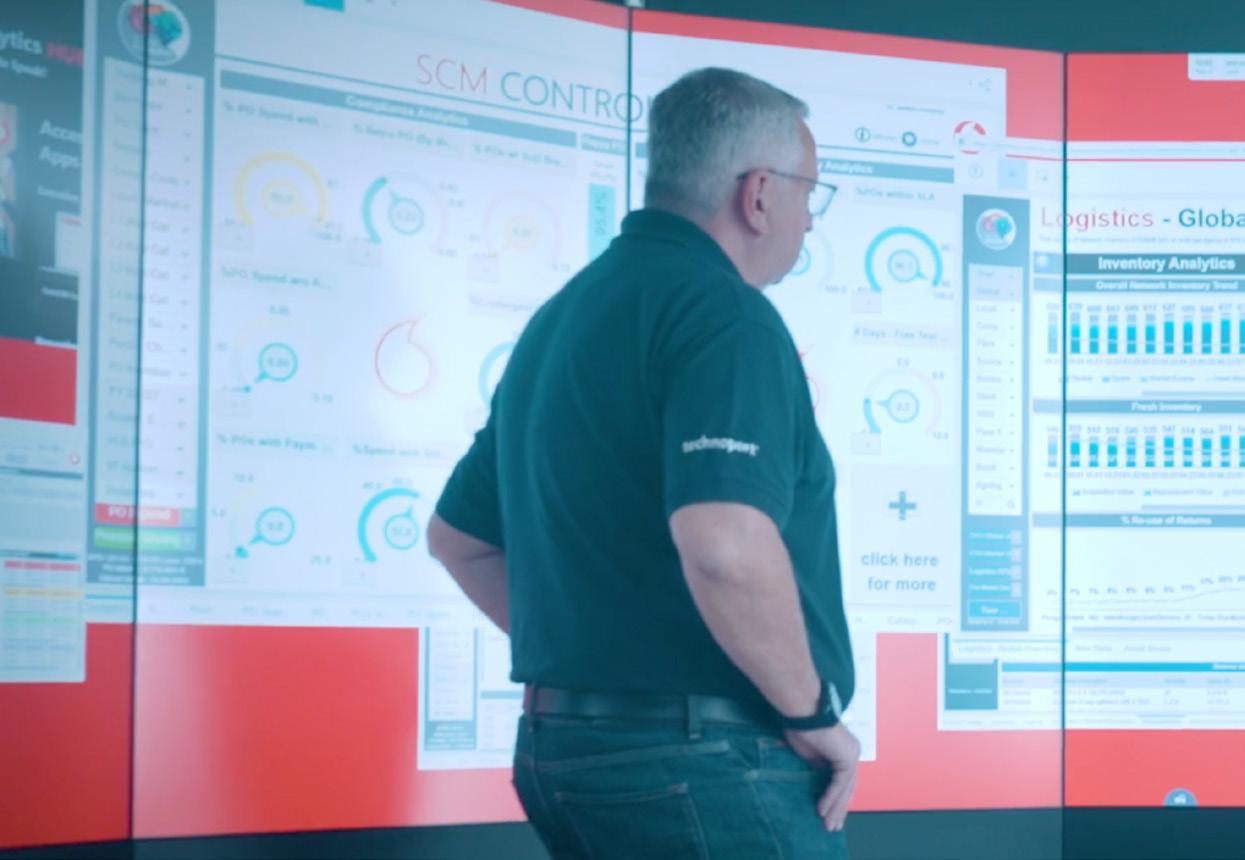
and hands-on expertise,” Ninian Wilson says. “The vision is to create the future of procurement with digital and pioneering practices, connected to experts worldwide.”
“
not only saves vendors money, but it also leverages our scale as a company”
CEO, VODAFONE PROCUREMENT COMPANY AND GLOBAL SUPPLY CHAIN DIRECTOR OF SUPPLY CHAIN MANAGEMENT
TITLE: CEO OF VODAFONE PROCUREMENT COMPANY AND GLOBAL SUPPLY CHAIN DIRECTOR OF SUPPLY CHAIN MANAGEMENT
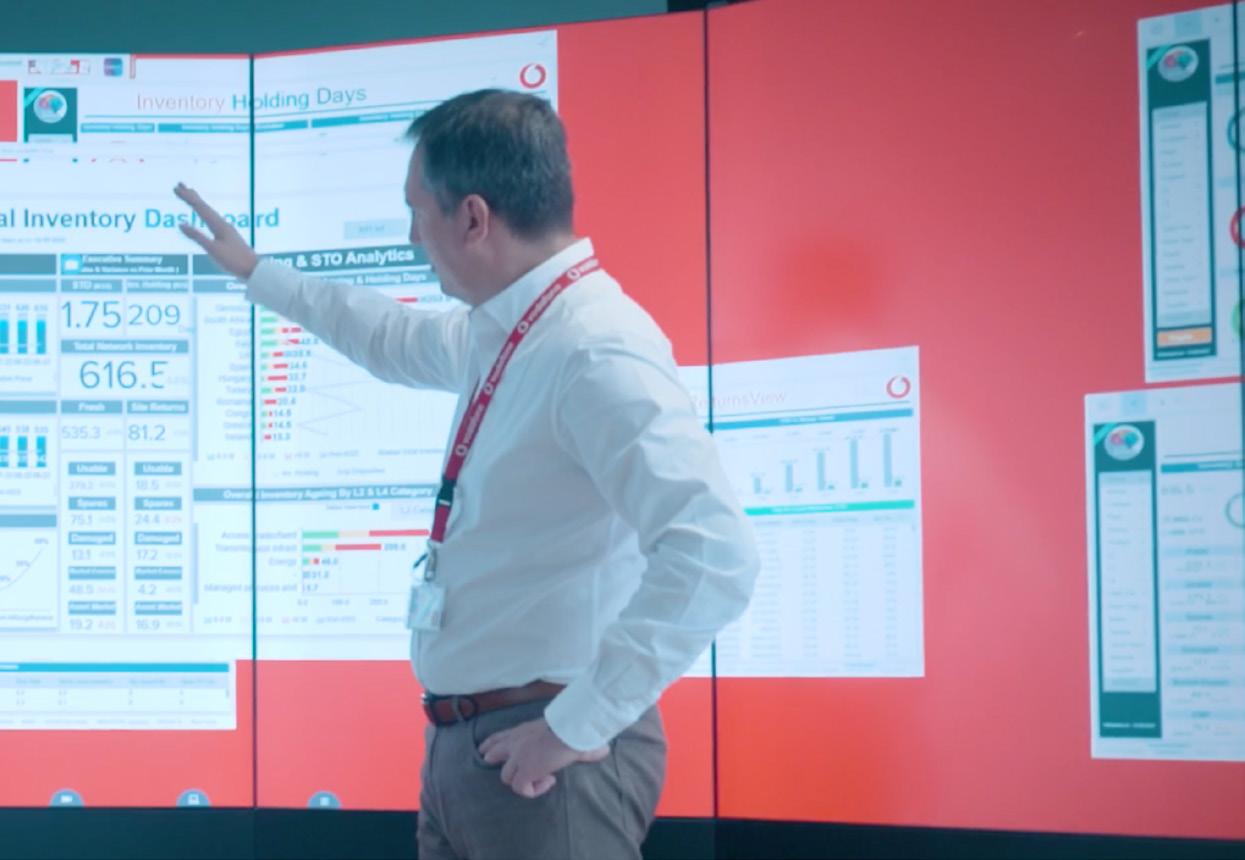
INDUSTRY: TELECOMMUNICATIONS
LOCATION: LUXEMBOURG
Ninian Wilson is CEO of Vodafone Procurement Company and Director of Supply Chain Management. He joined Vodafone on 1 June 2009 as IT procurement director and was appointed to the board of Vodafone Procurement Company in November 2009. From 2014 to 2016 he held the role of SCM Technology Director and was responsible for all technology sourcing in the company, including Networks, IT and new product development. In March 2016, he was appointed director of group SCM and CEO of Vodafone Procurement Company.
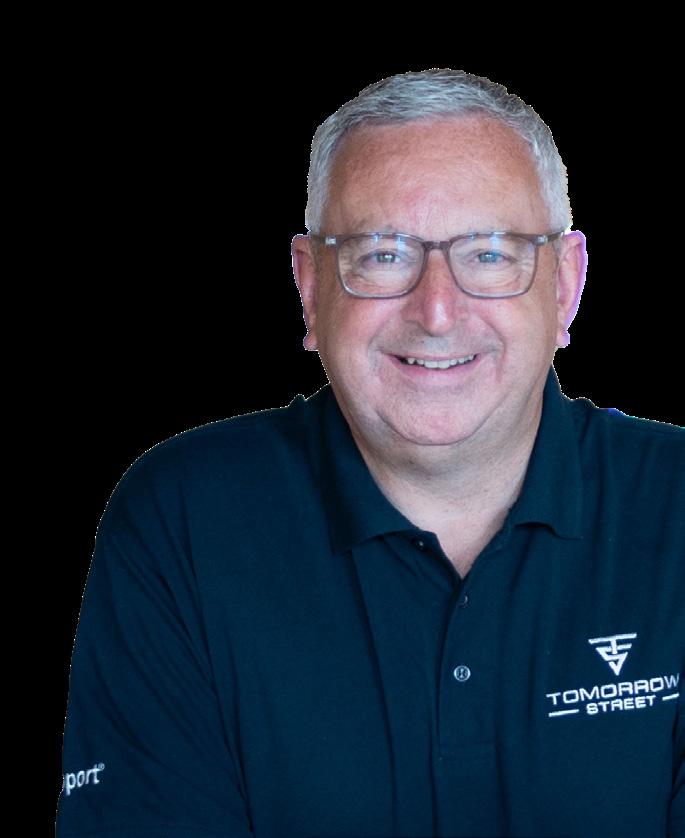
MarketPlace brings structural change to the way telecom operators SOURCE & MAINTAIN their networks by putting the CIRCULAR ECONOMY at the core of their business, resulting in efficiencies, cost savings & planet benefits. Our MarketPlace technology moves networks towards NET ZERO.










Shields CEO Daniel Jones explains how his company’s MarketPlace software platform helps telecom operators of all sizes save money - and the planet
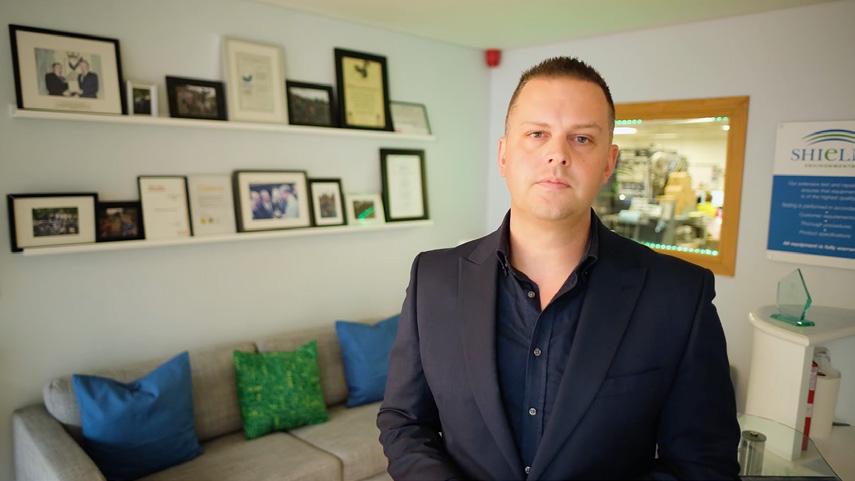
The global telecoms industry faces critical challenges in the fight against climate change and the drive to introduce a more circular economy. Reducing greenhouse gas (GHG) emissions has become a global goal to mitigate climate change, and telecom operators have an important role to play.
Drawing on four decades of experience working in the telecoms sector, UKheadquartered Shields has developed MarketPlace, a cloud-based platform which allows telecom operators to realise financial, environmental and social benefits.
“The telecoms world is now only 8.6 per cent circular,” says Shields CEO Daniel Jones. “The contribution network equipment can make to achieve a circular economy is enormous.”
MarketPlace has been adopted by the leading international telecom operator Vodafone, active in more than 25 local markets. To date, the Shields platform has enabled at least €30 million of CAPEX saving from reusing refurbished equipment and more than €5 million of additional revenue generated from the resale of surplus network equipment. It has also saved more than 7,000 tons of greenhouse gas emissions during the process.
Shields had been offering circular economy services for a range of operators when they were first introduced to Vodafone UK in 1998.
The telecom giant was in the process of modernising network equipment, and Shields formed a relationship with Vodafone UK that enabled them to introduce a 3R principle: 1) optimise Reuse back to Vodafone UK,
2) Resell surplus Vodafone UK assets globally and 3) Recycle the delta with a zero landfill policy. This 3R policy adopted with Vodafone UK is the foundation of MarketPlace which has introduced a fourth ‘R’ and explores Group Reuse after local needs have been catered for.

“MarketPlace creates significant financial savings (avoidance) and generates new revenue streams, whilst at the same time reducing long lead times compared to new equipment. There is a positive business case that also saves the planet. It is a win-win-win for all telecom operators that embrace our MarketPlace solution, which they need in this highly competitive market,” says Jones.
Find out more



Open RAN provides an exciting opportunity for Operators and Vendors to collaborate in a more harmonious manner. While Operators get an opportunity to pick the sub-system components from different vendors aiming towards efficient technology, cost modelling and operability, vendors see this as an area to enhance their individual products or components, instead of building end-to-end traditional RAN models.
While Open RAN has led to a more open environment and expansion across vendors and ecosystems, it also has certain challenges, such as procurement. There are different models that operators are using to procure networks; the single-vendor model, in which all the risk is managed by a single entity that manages all the risks of multiple eco-system vendors, is one such model. The other model is procuring individual sub-systems, taking the responsibility to stitch the solution together and procuring professional services with limited liability. Each model has different implications on accountability, risk profile and commercial/ contractual conditions. From the seller’s
perspective, a risk premium is often defined to manage unknowns depending on the model. However, this can lead to Open RAN losing out as comparisons are often made with traditional RAN procurement models –a comparison that unfairly de-emphasizes the enormous benefits of Open RAN.

NEC has collaborated closely with Vodafone to contribute in the field of Open RAN; together we will build one of the largest commercial Open RAN networks in the world. The future of Open RAN is promising and challenging at the same time. To allow innovation to foster, we need to move forward steadfastly and with patience. In the short term, an investment led approach needs to be taken that doesn’t measure TCO on Day 0 and that doesn’t default to the vertically integrated solutions the market is accustomed to. This will give time for the benefits of virtualisation and cloudification to be realized, which will be the basis of building next generation networks.

Internally, its job is to support Vodafone, and, in so doing, it is also indirectly supporting Vodafone’s consumer and business customers around the world, whether these be large corporates or small companies.
Ninian Wilson says the Vodafone Procurement Company also has external customers to whom it provides procurement services.
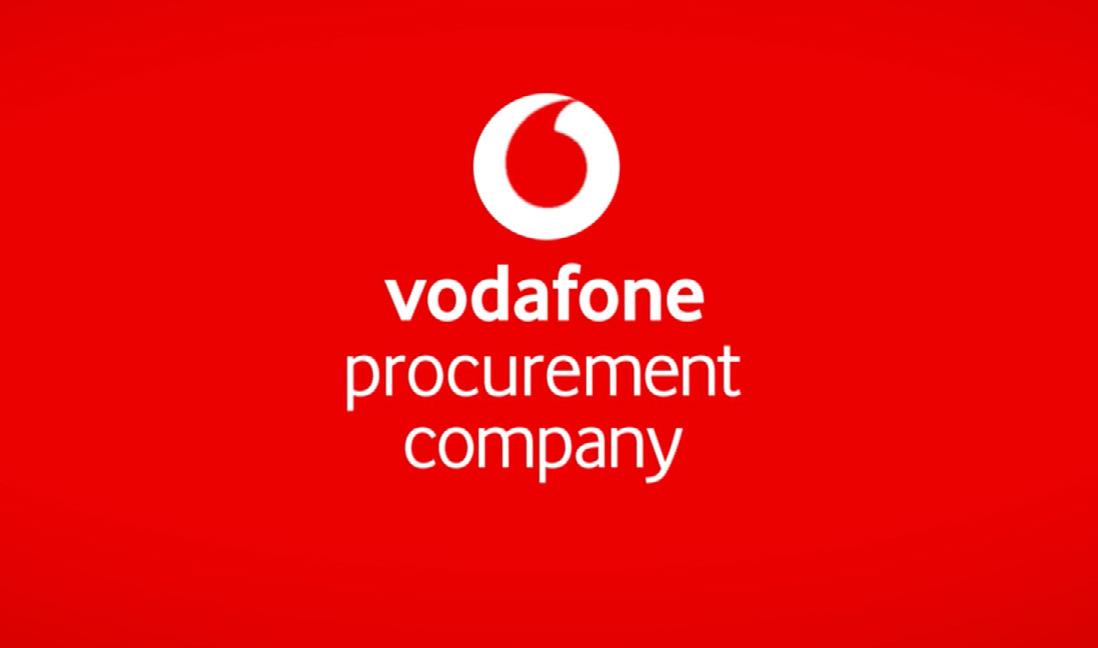
“This is through what we call our Partner Markets Division,” he explains, adding that this team sells Vodafone products and services, including third-party procurement and supply chain support. “Our primary role is to make Vodafone successful and to provide it with competitive advantage,” Ninian Wilson goes on to remind us.
Ninian Wilson helps deliver competitive advantage to Vodafone Part of that competitive advantage is ensuring it works with the kind of suppliers who not only help the company mitigate
against supply disruption, but who also perform strongly on ESG requirements.
Before rubber-stamping suppliers to provide Vodafone with products or services, VPC vets them closely, assessing their commitment and performance on diversity and inclusion, the environment, and health and safety in areas where there is risk.
On ESG, Ninian Wilson says VPC has taken “a very strong and forward-looking position”, adding that Vodafone doesn’t just recognise diversity “but celebrates it”.
“We take every opportunity to ensure we create an inclusive environment for all and provide opportunities for thousands more across our supplier base,” he says.
“Diverse suppliers bring a huge positive impact to our businesses and, ultimately, to our customers. This is why we identify partners who embrace diversity in their workforce, and who influence companies in their supply chain to do the same.”
As a company, Vodafone says it believes that “the promise of a better digital future should be accessible to all” and is committed to “ensuring the more vulnerable are not left behind on that journey”.

“We help support Vodafone in this,” says Ninian Wilson. “We help it use technology to bridge divides in society, and to ensure people can contribute equally and fully to society. Our employees come from 50 nations, and we employ 36,500 women globally, so we understand what it means to have a diverse workforce.”
Prior to Vodafone, Ninian Wilson was Chief Procurement Officer with Cable and Wireless, as well as also being Operations Director at Royal Mail.
How did those challenging positions help shape him professionally?
“I learned a lot in the Cable and Wireless role,” he says. “It was my introduction not only to telecoms, but also to international procurement.” He enjoyed some of the
locations, too. “Most of our operations were in the Caribbean, so it was clearly a good job to have.”
At Royal Mail, Ninian Wilson says he had 158,000 people working with him or for him. “I learned a lot about what it takes to work with a huge workforce. It showed me the pros of my management style, but also the limitations.”
“Vodafone
DIRECTOR OF SUPPLY CHAIN MANAGEMENT


As a key partner of Vodafone Procurement Company, Netcracker is preparing the supply chain for a digital world.
etcracker’s portfolio of digital products is designed to help businesses, like Vodafone Procurement Company, innovate and automate their operations. By tracking data such as inventory levels and client payment history, companies can better understand their operational needs and ensure they are running as efficiently as possible.
Netcracker Digital Platform is made for the transformation to a digital world. With Netcracker Digital Platform, an open, modular digital-native solution, businesses can adapt quickly to changes in the market, stimulate innovation internally and maximize profitability from their investments.
“As we see an increasingly digital society, Netcracker is proud to be on the front lines of development for products that help businesses achieve automation,” said Bob Titus, CTO of Netcracker. “We want to enable Vodafone Procurement Company to fulfill its goals of autonomous procurement and reducing its carbon footprint as it takes the next step of its digital transformation.”
With cutting-edge data and analytics, Netcracker provides Vodafone Procurement Company with a competitive advantage in the marketplace. Netcracker Digital Platform automates every aspect of the operations environment within and across domains with embedded intelligence for zero-touch and self-management.
Netcracker addresses the digital transformation through:
outcomes
agility
collaboration
cloud operations
“In summary, Netcracker Digital Platform provides the tools and practices needed to deliver the digital future,” Titus said. “Our software accelerates business agility and stimulates innovation, enabling our customers to succeed in their automation goals.”

 NINIAN WILSON CEO, VODAFONE PROCUREMENT COMPANY AND GLOBAL SUPPLY CHAIN DIRECTOR OF SUPPLY CHAIN MANAGEMENT
NINIAN WILSON CEO, VODAFONE PROCUREMENT COMPANY AND GLOBAL SUPPLY CHAIN DIRECTOR OF SUPPLY CHAIN MANAGEMENT
“I like to be on first-name terms with everyone though, obviously, it's difficult to remember everybody's name. But you meet some wonderful people from very diverse backgrounds; I think you bring all that knowledge and those experiences with you when you take on a role like mine at a multinational company like Vodafone.”
Vodafone Procurement Company has seen many changes Ninian Wilson joined Vodafone in June 2009, and he has seen many changes in the years since. “Back then, the procurement team in
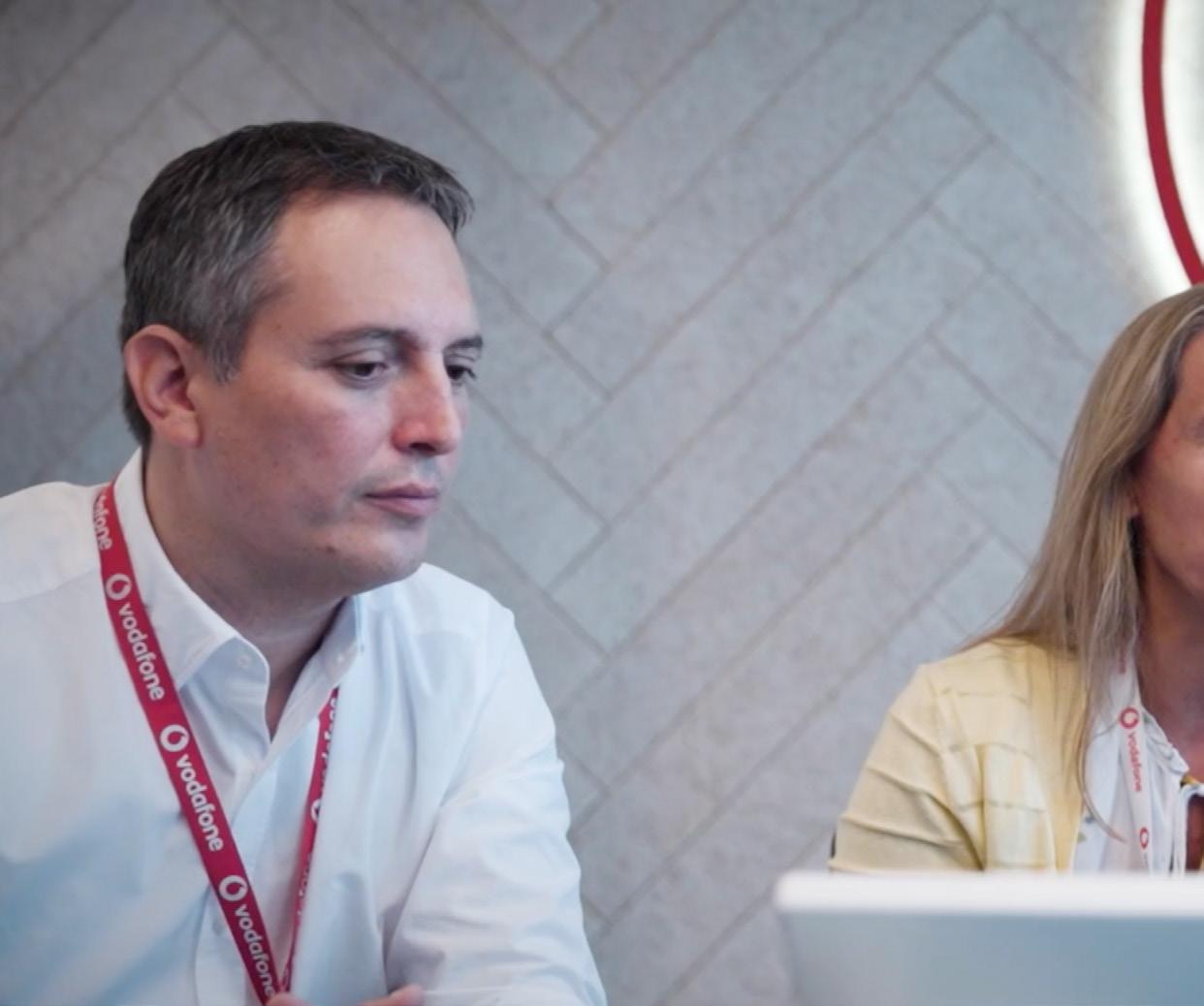
“Diverse suppliers bring a huge positive impact to our businesses and, ultimately, to our customers”
Luxembourg numbered 150 people, whereas today it is more than 400 people,” he says. “We've scaled operations in that time, but I also think its role is now more than being about just managing procurement activity. We're also managing physical logistics activity, such as warehousing distribution and supply chain for our network equipment. Obviously, we're also managing risk and building a more-resilient supply chain.”
The focus of VPC may have shifted over the years but the core of the business remains procurement, “making sure we get the right requirements from our
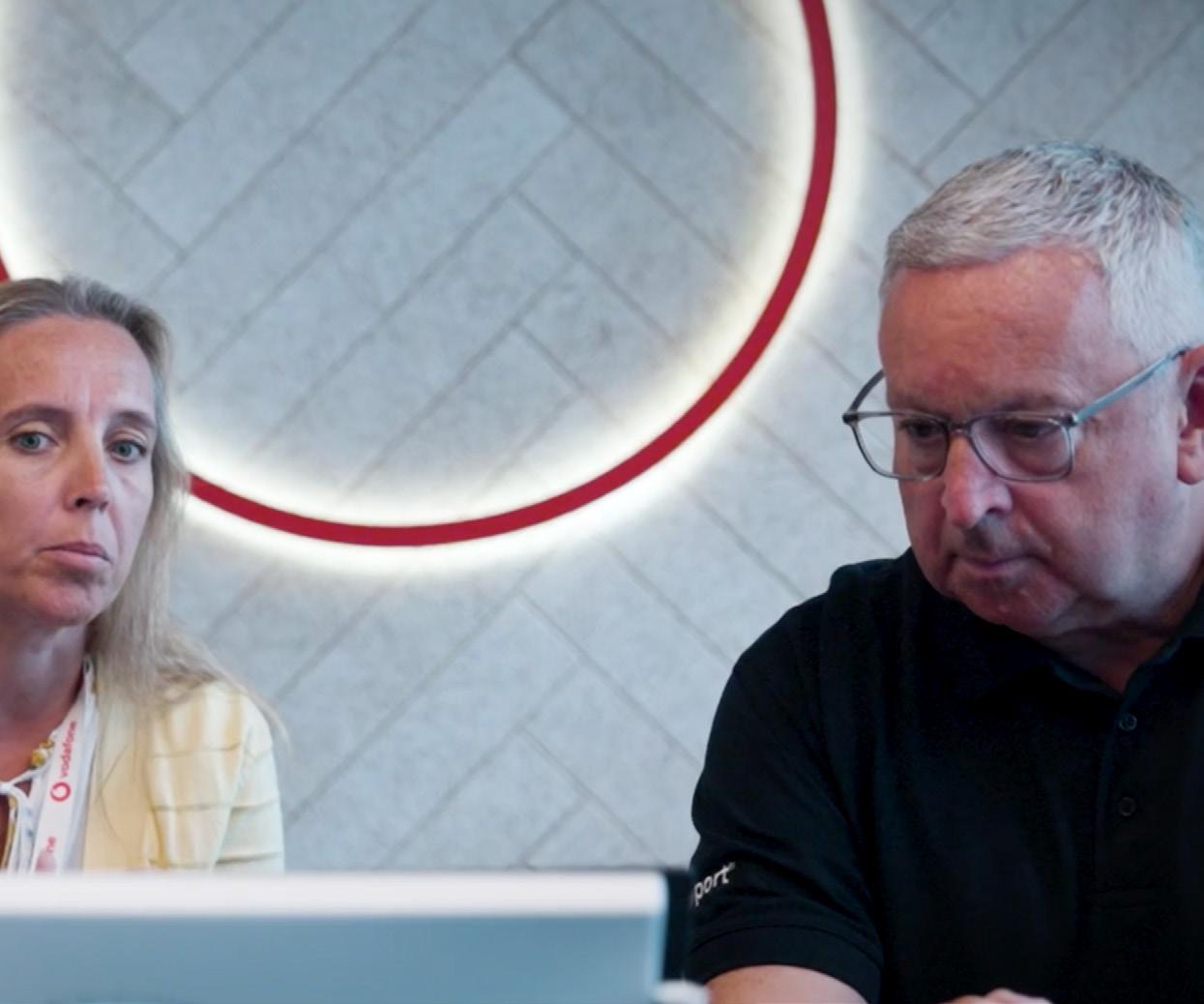
internal clients and that we have the right engagement with our supply partners”, Ninian Wilson says. “The core is the same but everything else around it, in terms of context, has changed.”
When asked what is his biggest challenge currently, Ninian Wilson replies by saying he sees challenges as opportunities, and adds with a wry grin: “Let’s just say there have been far more opportunities over the past three years than I expected.”
He adds: “But certainly I'm hugely proud of the work the team has done to get us through two years of pandemic. I think


the pandemic for us has been a defining moment for teamwork, collaboration, and getting things done together. Although, during that time we had never been physically further apart from one another, we had never felt closer. I felt it pooled the entire company together.”
It also changed the way VPC works, with hybrid working now the norm – something Ninian Wilson feels is “good for our people and good for our company”.

The pandemic also saw Vodafone offer staff the ability to work abroad for periods of time “which a number of our employees and colleagues have taken advantage of this year” according to Ninian Wilson, who then states how it has “changed the dynamic of working”. He does admit that, as part of this changing dynamic, hybrid working asks different questions of his managerial style.
“Managing people remotely is different to bumping into them at the coffee machine and having an informal chit chat,” he says. “I do miss that, but we're working hard to make sure we make hybrid working as productive for both the person and the company as possible. We've just about got the balance right but we're still learning.”
The Vodafone Procurement Company’s team has done ‘amazing work’

As well as his team’s sterling efforts during lockdown, Ninian Wilson says that his team has done “amazing work” battling microchip shortages across Vodafone’s operations, in the face of demand for microprocessors massively outstripping supply.
And supply problems continue apace, with geopolitical turbulence and inflation compounding pandemic woes.
“We've now got the impact of the Ukraine War, and yet more uncertainty in supply chains,” Ninian Wilson says. “I would say the biggest challenge we face today is creating more agile supply chains, which can flex as they meet ongoing challenges.”




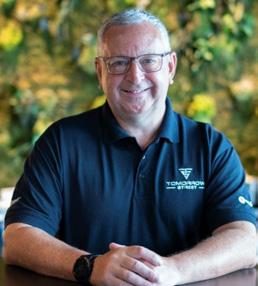
“Supply as a sector takes a long time to change and ways of working tend to be quite embedded. So, making them more agile is certainly a challenge, but it also provides us with opportunity if we get it right.”
Asked what he feels VPC’s defining strategy is, Ninian Wilson says that no procurement or supply chain team can have a separate approach to the overriding company strategy.
“As a company, Vodafone’s strategy is to help society digitise, to be a more inclusive employer and to work really hard on sustainability,” he says. “This is a very

purpose-driven approach, and we’re strongly aligned to this, in that we’re adopting and driving a purpose-driven approach as a procurement organisation.”
Achieving this, he says, comes down to “how VPC builds relationships” with key partners and key suppliers “as well as how we transform our physical logistics and supply chain activity, and how we utilise all our great people to bring that strategy to life over the coming years”.
15 Rue Edward Steichen, 2540, Luxembourg www.vodafone.com

 POWERED BY:
POWERED BY: